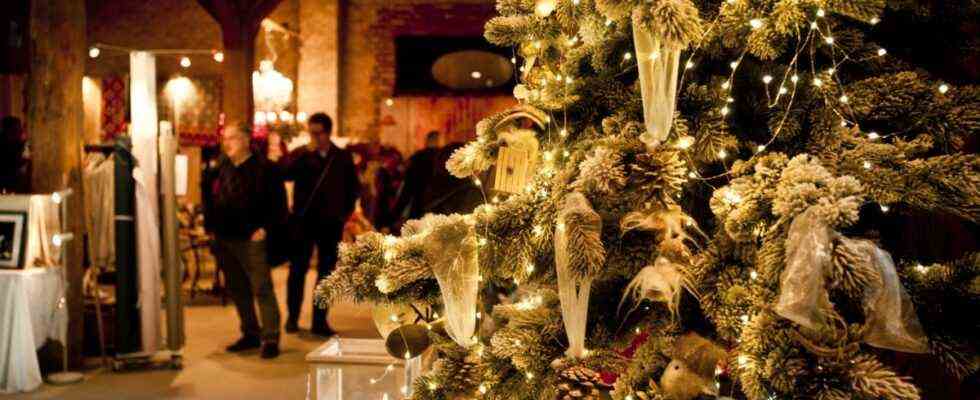“We are all devastated,” says Esther Buyken from the event forum early on Friday afternoon. About an hour earlier, news had made the rounds that Christmas markets had to be canceled all over Bavaria. It is not yet entirely clear that this also applies to the event on the monastery grounds. Because this is more of a spacious craft market than a narrow, mulled wine and bratwurst-dominated Christmas market. But the staff of the event forum and the 60 suppliers who wanted to come do not have much hope. The matter is also pretty clear for Mayor Erich Raff (CSU), who comes to the town hall after a meeting with mayors and district administrator. A majority in the main committee had already canceled the city’s Christmas market a week ago in view of the skyrocketing incidence, although it would have been moved from the cattle market square to the more spacious festival square. Such an event is currently hardly justifiable, it was said in a closed session.
On Thursday evening, in turn, a large majority of the city councils in the Bruck town hall were convinced by Fürstenfeld boss Norbert Leinweber. Leinweber had referred to the very meticulous hygiene concept of “Advent in Fürstenfeld” – and rather incidentally, that such decisions about events in the event forum are the responsibility of the plant management and the city council, which is supposed to vote on them at the end of the month, is actually not responsible may be.
If Prime Minister Markus Söder hadn’t spoken his word of power on Friday afternoon, a majority in Leinweber’s sense in the city council would have been very likely.
The Fürstenfeld boss promoted the decentralized event with the involvement of the Fürstenfeld restaurant and Klosterstüberl, which Fürstenfeld wanted to take over from Birgitta Klemenz this year. He contradicted the statement drawn up by the city administration. With free entry, a maximum of one thousand visitors were planned on the fenced area, as well as the 2-G or, if necessary, 2-G plus regulation. In the threshing floor, it should be compulsory to wear a mask. Leinweber complained that the barely regulated mulled wine serving was just as little a problem in large furniture stores as tens of thousands of spectators at FC Bayern, but that in Fürstenfeld, despite the hygiene concept, they were viewed particularly critically. Florian Weber (The Party), Georg Jakobs (CSU), Klaus Wollenberg (FDP), Markus Droth (Free Voters), Philipp Heimerl (SPD), Karl Danke and Lisa Rubin (both BBV), Alexa Zierl (ÖDP) agreed ) and under the condition “2-G-plus” also from Christian Stangl (Greens). Against this, because of the “out of control” infection situation, Stangl’s parliamentary group colleagues Gina Merkl and Theresa Hannig voted.
Söder’s latest decree for the event forum is particularly painful for another reason, said Leinweber in a first reaction on Friday. Somewhat clauses put “the fatal blow” on all cultural events. Because in future cultural and sporting events will have a maximum occupancy rate of 25 percent of spectators and 2-G-plus. Leinweber explains the dilemma using the example of the Jazz First subscription series. There are – still – 150 subscribers. It is hard to imagine that some of them could now be banned from entering and the rest of them would give you a quick test. Leinweber also expects legal contract problems if you have to turn away 30 to 40 people. “Completely absurd” is meanwhile. This quasi-lockdown is proof of the importance that culture enjoys at Söder.

